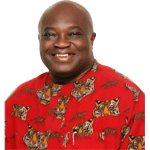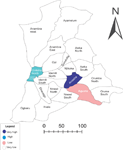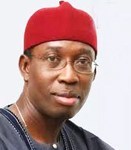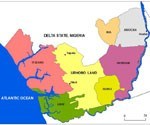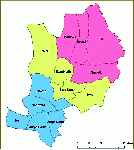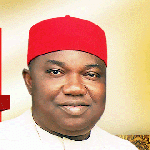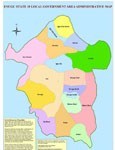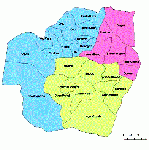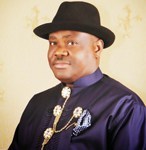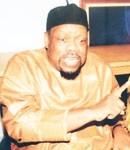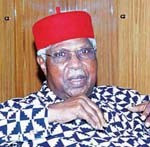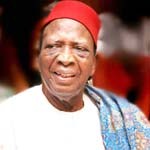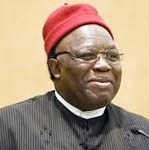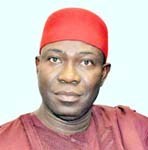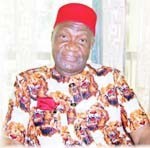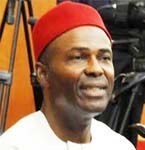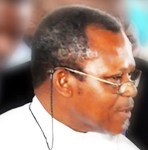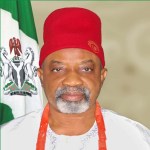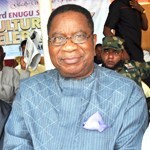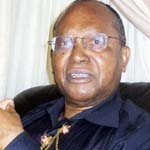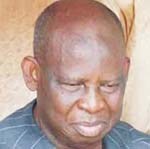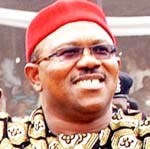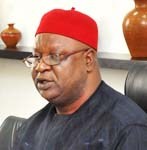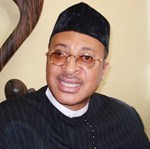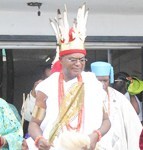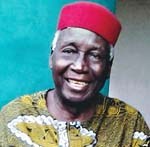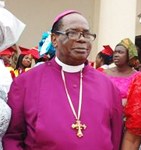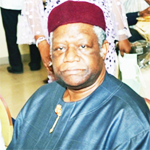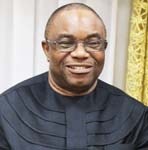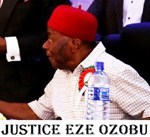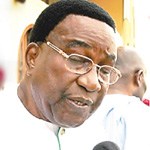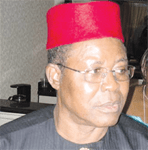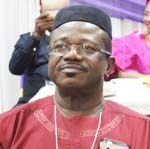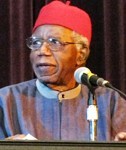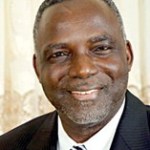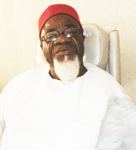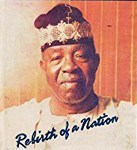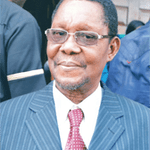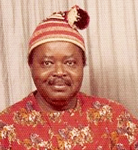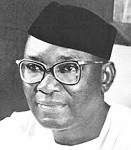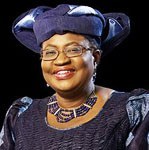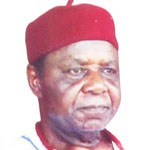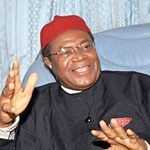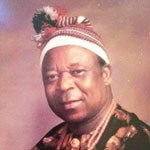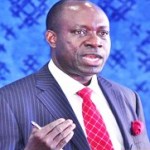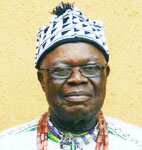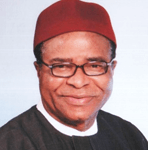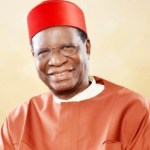THE IMPERATIVES OF RESTRUCTURING NIGERIA
THE POSITION OF WORLD IGBO CONGRESS ON THE PANACEA FOR STABILITY, EQUITY AND JUSTICE
BACKGROUND: THE UNMITIGATED DISASTER BEGINNING WITH UNITARY GOVERNMENT OF 1966
The Unitary Government system ushered into Nigeria by the military administration is the main reason why Nigeria has ended up nearly one hundred years behind where it was in 1966. It has fostered corruption, systemic greed, unbridled arrogance of leaders, wrongful enrichment of select few at the expense of the people, bankrupt educational system, unskilled labor force, suppressive policies by autocrats dressed in democratic garbs, a nation judged rogue by international bodies, a non-functional ‘One Nigeria’ ripped by religious extremists, a country whose nationhood is undermined by ethnic and religious preferences, a country whose nationalists exist only in one of her over 300 ethnicities, a country where Octogenarians have deprived five generations of fellow Nigerians the opportunity to become leaders at the central government, a governmental system that refused to allow an economic model that would use her God given Petroleum resources to diversify the national economy, a country where injustice displays everywhere and leaders disobey and disregard even supreme court orders, a country whose leaders engage in ultra-wasteful spending for personal pleasure even as they preach frugality as a means to curb corruption, a country that makes major economic decisions based on geo-politics at the shameful forfeiture of national development (remember the Ajaokuta National Steel project and the politics of locating it’s auxiliary plants; the politics of now dysfunctional refineries, etc.).
WHAT WORKED: REGIONALISM
Nigeria was doing well under regional system of governance. It was easier to monitor corruption. It was easier to monitor government projects of all magnitude and type. Each region set her educational goals and standards, infrastructural development, regional economic plans, and social programs, deploying measurable benchmarks for progress along the way until the project was fully implemented and commissioned. Regionalism worked in the Eastern region, producing distinguished pace setters for Nigeria, most of whom Nigeria denied the self-set goals of making Nigeria a giant of Africa and a model new world country that would successfully compare with the developed nations. Some of the success stories of Regional Federalism in Nigeria are Prof. Kenneth Dike, first Nigerian V.C of University of Ibadan, Prof. Eni Njoku, first Nigerian V. C of University of Lagos, Prof. Chike Obi, first Nigerian professor of Mathematics, Prof. Austin Esogbue, first black professor at Georgia Institute of Technology, Prof. Linus Ogbuji whose applied mineralogy expertise assisted NASA in bringing back to Orbit, the Astronaut vessel that went into flames in 1986. There are thousands more; there just is not enough space to list them here. Of course there are similar success stories in every region of Nigeria. The point is that the Unitary Government system of Nigeria has robbed Nigeria the stage, environment and national mindset to produce quality career professionals. The current system has stifled development in Nigeria, and regrettably left her with academic institutions where students resort to cultism as pathway to success, where students offer sex to teachers and professors in order to graduate from high schools and universities, where parents get involved in arranging proxy written exams for their wards, and where third class graduates from Ghana, Cameroon and other neighboring countries are judged more competent for work by Shell and other oil companies in Nigeria, than a First Class graduate from any of Nigerian Universities. Very chilling reality, but exactly what can happen when a Federal Unitary government of Nigeria pursues a policy of ‘bridging the gap between the North and South’ of Nigeria and the ethnic blocks compete to loot or steal the national coffers. Recall the federal government actions that triggered the mass exodus of university professors, medical doctors and other professionals from Nigeria in 1985 and after?
SALVAGING NIGERIA: THE IMPERATIVE OF RESTRUCTURING
By definition, to restructuring is an attempt to move away from the status quo that may have been viewed by many as unworkable or unreflective of a federal system of government. It is a means of adaptation to new and novel vistas of political and social re-engineering, but one that is necessary for mutual co-existence, not separation. It is a mid-range phenomenon between continuity and a forward-looking vision as opposed to stasis and retrogression. In any effort at government restructuring, one must naturally expect a degree of opposition, for the simple fact that those who are more benefited by the status quo are hesitant to let go.
Constitutional Perspective to the History of Nigeria
The current Constitution of Nigeria was enacted on 29 May 1999, inaugurating the Nigerian Fourth Republic. Before this 1999 constitution, there were a series of constitutions as follows:
- Nigeria’s first constitution was enacted in 1914 by the British order in council when the territory was administered as its Crown Colony. Thereafter, the constitution was re-enacted in 1922, 1946, 1951 and 1954.
- The next was the Independence constitution of 1960. It was Nigeria’s first constitution as a sovereign state and was enacted by a British order in council so as to come into force immediately upon independence, on 1 October 1960. Under this constitution Nigeria retained Queen Elizabeth II as titular head of state.
- Then came the First Republic constitution of 1963 which was based on the Westminster system. It continued in operation until a military coup in 1966 overthrew Nigeria’s democratic institutions.
- In 1979, the Second Republic was ushered in by the constitution enacted that year. It abandoned the Westminster system in favor of an American-style presidential system, with a direct election with a mandate for political parties and a Federal Executive Council that must, ostensibly, reflect the “federal character” of the nation
- The Third Republic constitution was enacted by the military in 1993 and was intended to see the return of democratic rule to Nigeria but was never fully implemented, and the military resumed power until 1999.
- The Fourth Republic constitution was enacted by the military in 1999 and intended to restore democratic rule to Nigeria, and remains in force till today.
The bottom line in all these enactments are:
- The more than 400 ethnic nationalities did not have an input in all of them and that is a violation of their inalienable right to self-determination.
- It sustained the amalgam up to and beyond the 100-year British experiment on nationhood for Nigeria
- Nigeria has fumbled along from one crisis to another; from one action of ineptitude to another; from a set of inequities and injustices to another and always tottering on the brink of collapse.
- The very fabric of Nigeria is shaken by instability due to dissatisfaction across the land.
World Igbo Congress advocates a restructuring reminiscent of the aspects of the regional system that worked in the past. It advocates a true federalism that will anchor on free ethnic consent, equality and fair play. It calls for a true federalism where federating units have commanding rights to appreciable fiscal autonomy and control, as well as appreciable self-management of resources. It demands true federalism where the constituents (be it the current 6-zonal structure) have the right to govern and develop themselves in accordance with the capacities and capabilities inherent in each constituent within the framework of the mutually agreed federating units.
To achieve this, World Igbo Congress, calls on Nigeria to approach the process from the perspectives of
- Constitutional Re-engineering to truly reflect the proclamation “We the People of Nigeria …”
- Political Re-engineering
Constitutional Re-Engineering
World Igbo Congress recommends that the first step in the restructuring of Nigeria must come from reviewing the current Nigerian constitution to give the process the much needed foundation that will provide the mechanism for the distribution of power, authority, and incentives of citizenship. To the extent that governmental systems can be construed as processes driven by change and circumstance, it is therefore incumbent on political leaders to ensure that the Constitution and other tertiary laws of the state are made to adapt to these changes. The constitution, as it is now is riddled with contradictions, contorted logic, a series of misspellings, unprofessional work, and is actually set up for implosion. The point here is that the constitution needs to be reviewed. Specific details will be made available accordingly if the idea of a constitutional review is revisited.
In the meantime, any new constitution must have checks and balances such as ensuring that no constitutional changes should be made unless there is consent of the national and state legislators (2/3 vote of all Representatives and Senators form each geopolitical zone; and ratification should be made by three-fifth of all state legislatures).
Political Re-engineering
In the “multi-ethnic” Nigerian society, majority rule has an uncanny way of stultifying the dignifying tenets of democracy. An ethnic group with a majority simply dominates the government (especially the legislature) perpetually. Minorities would then have to compromise or build such coalitions in which their own interests would become secondary because they lack the votes and cannot muster any form of lose coalition that can deliver. In the practical sense of the term, absolute ‘majority rule’ and unchecked democracy are inimical to the political interests of minorities, particularly in a federal structure such as Nigeria.
The restructuring process must, therefore, seek true federalism by addressing political inequities.
Nigeria must devolve state powers to federating units with equity in mind.
Recommendations on Political Inequities
World Igbo Congress does not call for increase in the number of states of administrative zones because existing ones are largely insolvent. Therefore, the existing zonal structure could be maintained with balance of number of states. Southeastern zone is qualified for this adjustments to bring to total number of States to 6 (at par with other zones). While restructuring should address all facets of the existence of the country, a few examples are listed below:
- Privatization of Public Holdings: It is obvious that the Nigerian privatization experience, modelled after World Bank and the IMF has not yielded the expected dividend due to graft and indiscipline. World Igbo Congress, therefore recommends that restructuring should hold-off on the privatization of public utilities and infrastructures; the economy is yet to develop the economies of scale and the critical mass necessary for wealth creation that would allow many of the citizens to participate in the program of privatization. Alternatively, the government can convert these public utilities and agencies into self-supporting for-profit entities; or public-private partnerships in which ownership is open to the general public (not corporate investors) no matter the level of individual income.
- Security and Military Installations: The security infrastructure and military establishments of the country are massively, but unjustifiably, concentrated in the Northern geopolitical zones. This is inimical to national unity and integration. World Igbo Congress recommends that these facilities should be decentralized or critical strategic sectors be departmentalized to the geopolitical zones. If all the facilities (the training, doctrinal, and production centers) are for the collective defense of the whole country and with no bias or ulterior motive, then why should they not be made to become part of the regional or geopolitical architecture of the whole country?
- Policy on Education: The states should be allowed to control their education policy but should follow negotiated federal guidelines and constitutional stipulations that allow for consistency, fairness, and due process in the implementation. States should be allowed to decide where their critical skills and intellectual assets lie; and only they should be in a better position to articulate, design, and revolve their curricula to reinforce these for the purpose of general education, knowledge management, and the development of specialized skill sets, niches, and innovations that create comparative advantage. The federal government should not stunt this to the obvious detriment of everyone.
- Right of Residency and vote: A re-engineered constitution must guarantee that every Nigerian citizen has a right of residency, vote, and citizenship in any state of their choice where they may have resided and or conducted their business and/or professions in a legal manner.
- Resource Control and Derivation: A new derivative formula should be designed to address the perennial issue of resource control. It should be a 80/20 formula where the federal government gets 80 percent and each state gets 20 percent of the allocation based on funds sourced from the natural resources in that state, whether it is oil, coal, agriculture, grass feeds, or other minerals. For the states that have oil, they should be mandated to undertake the execution and administration of some federal projects (to be agreed upon) in their states, and should receive lower percentage of discretionary or block grants that may be given to the states by the federal government. For states that are not oil-producing, they should be given a higher percentage allocation in federal discretionary and block grants, as long as there are general stipulations regarding where the fund would go. There should also be an accountability system for monitoring, audit, and modification. It should, however, be noted that as long the federal government disburses petro-funds to the states, then the issue of property ownership (who owns the natural resources) belongs to the federal government.
- The Presidency and Term of Office: Which ethnic or religious groups gets the presidency has always been a contentious and explosive issue. Therefore, a revised Nigerian constitution should institutionalize a President and a Prime Minister, nominated and elected not on the basis of region, ethnicity, or geopolitical zone; but on the basis of religion. The President and the Prime Minister should be rotated between Christians and Muslims. The only caveat is that both candidates should not come from the same state, ethnicity, region, or geopolitical zone. Let each of the two religions decide from where and who they will nominate for the national office. This model would save the country the existing problem of using ethnicity and region as a yardstick in the quest for political power and control at the highest level of government. In addition, World Igbo Congress proposes a rotational single term of office only for the duration of 6 years per tenure.
STOPPING THE BLEEDING
Restructuring Nigeria will abort further bleeding of Nigeria’s economy by cutting down on the size of the president’s advisory team, ministerial appointments, states governor expenses, local government budgets and election related, avoidable financial encumbrances. The revised and empowered zonal system will return regional development culture that encourages productive best practices in agriculture, education and industry, and freedom to explore citizens’ talent driven initiatives to excel in entrepreneurship. Each region will develop at own pace, and not wait for hand out from the central government of Nigeria, and will not be hindered by a central national policy that delays or retards progress in some regions to offer opportunities for the others to catch up.
A CALL TO ALL WHO LOVE NIGERIA
World Igbo Congress calls on all Peoples of Nigeria to fight for a return to true federalism as this is truly the way to restore Nigeria’s glory, develop our country, diversify our economy, gradually move away from dependence on fossil oil, and ultimately keep Nigeria as one nation. The more we delay this action, the longer the nation stays in quandary. The president, his executive council, the national assembly and every Nigerian need to see the common sense and expediency in this. Restructuring does not dismantle Nigeria, continuing with this unitary government is postponing the disintegration of Nigeria. You can bet on it. Any discussion on this burning subject from the perspective of the Igbo must carry the masses along.




